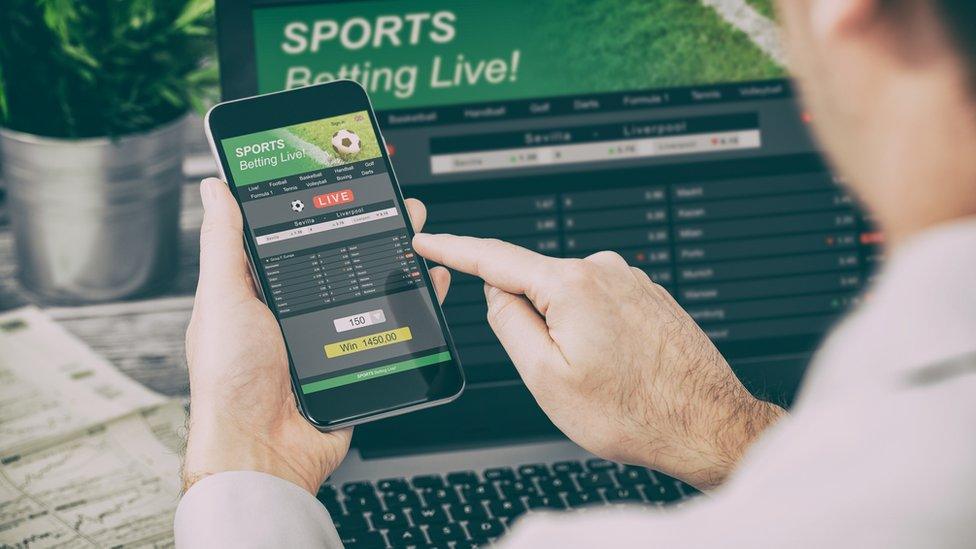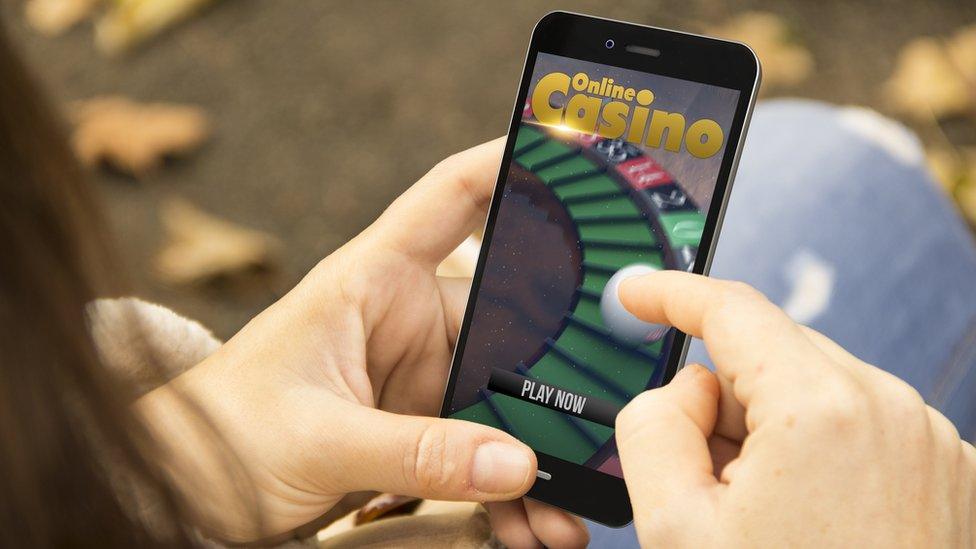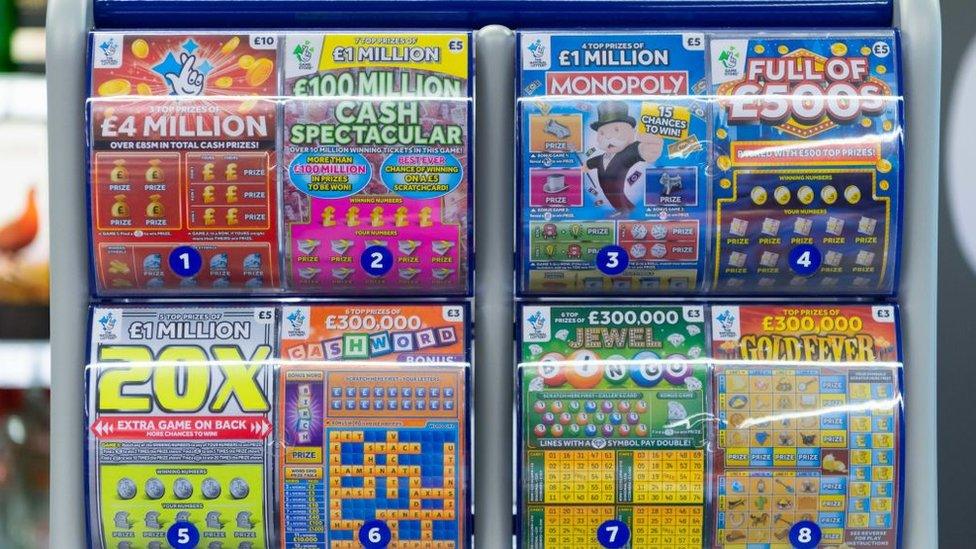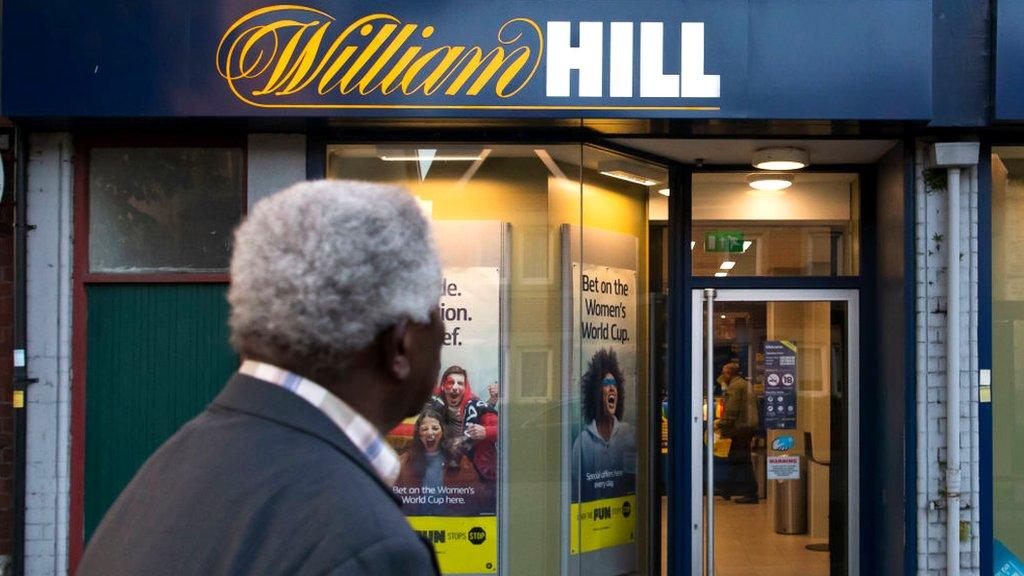Problem gamblers generate 4% of Kindred revenue
- Published

One of the UK's biggest betting operators has become the first to open its books to reveal how much of its business involves high-risk customers.
Kindred Group claims that 4% of its revenue is from customers showing signs of harmful betting.
The group owns nine brands, including 32Red and Unibet.
It comes as the UK government considers restricting or banning bookmakers from sports sponsorship, amid concerns that it helps to normalise gambling.
The company says it wants to reduce that percentage to zero by 2023 and that preventing it from advertising through sport would be "a negative step" and hurt the game's finances.
32Red is the principal shirt sponsor of Derby County, Preston North End and Middlesbrough in the Championship, along with Scottish giants Rangers.
"This is a key moment in the debate," Neil Banbury, Kindred's UK general manager, told the BBC.
"This is a way for us to inject some evidence and facts into that debate too.
"By opening our books… we can reach a solution to ensure players who need assistance with their betting behaviour receive it."
'Negative step'
Three-quarters of Premier League teams have betting sponsors or partners. That figure rises to 87% in the Championship.
"There is an awful lot of advertising within football, perhaps too much," admitted Mr Banbury.
"Certainly if you look at the Premier League, the vast majority of the brands from the gambling industry that are on shirt fronts have no interest in UK customers and perhaps that's an area where there could be some moderation.
"Removing the ability for us to work with the football industry completely would be a really negative step. It won't have any significant impact in tackling problem gambling.
"Our involvement in football provides the clubs with finances at a really tough time, certainly outside the Premier League, and gives us a good opportunity to have an impact on various issues."
Gambling sponsorship in sport is currently being analysed as part of the government's review of the 2005 Gambling Act, with a deadline for evidence set for next month.
It is estimated that teams in the top two divisions would lose a combined £110m a year if a ban were brought in. Commercial partnerships with the betting industry are also common in sports such as boxing, snooker and darts.
Football finances
Last week, Culture Secretary Oliver Dowden told the BBC that he was "very mindful" of the impact a ban on gambling sponsorship would have on finances in the English Football League.
"I'm also very mindful of the impact that problem gambling has, particularly on young people," he said.
"That's why we're taking a very open, evidence-based approach. I want to look at all the evidence and consider all the options and then to consult on specific measures.
"People shouldn't jump to any conclusions about where we're going, because I genuinely haven't reached those conclusions."
There are 340,000 problem gamblers in Great Britain, according to the industry's regulator, the Gambling Commission.
The Big Step, a charity which is tackling football's relationship with gambling, wants a ban on betting advertising in the sport, a stance which was echoed by a landmark House of Lords report last year.
Both the Premier League and the EFL - which is sponsored by Sky Bet - say their clubs comply with regulations. The EFL added that its "mutually beneficial" relationship with the gambling industry was conducted in a "responsible manner".
The Betting and Gaming Council, which represents the industry, says "betting provides sport with the vital funding it needs" and has introduced a whistle-to-whistle ban.
- Published2 February 2021

- Published8 December 2020

- Published23 January 2020
